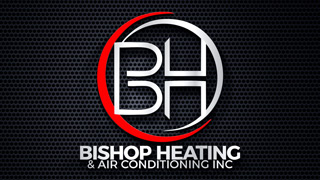
If you’re questioning whether your Bishop home has bad indoor air quality (IAQ), it likely does.
We are indoors a lot. In reality, we’re in a building up to 90% of the time, according to the U.S. Environmental Protection Agency. And the air inside residences could be 2–5 times worse than outdoors, which may create long-term health problems.
Most Common Causes of Bad IAQ
We’ve put together a list of the most common sources of inferior IAQ, the troubles they make and how you can remedy these indoor air pollutants. If you’re concerned about the air inside your house, we suggest talking with a pro like Bishop Heating & Air Conditioning about which options are best for your home.
Volatile Organic Compounds
Volatile organic compounds, or VOCs, are vapors emitted from regular household products.
They’re found in paint and stains in addition to:
- Furniture
- Carpet
- Building materials
- Cleaning products
- Cosmetics
- Air fresheners
- Candles
When these chemicals accumulate indoors, they may irritate your eyes, nose and throat. They may also result in headaches and nausea. Regardless of whether your house is in a rural or industrial space, an EPA study found indoor levels of these pollutants can be 2–5 times worse than the air outside your home.
Always use the manufacturer’s directions when using paint or cleaning supplies. Cracking a window can help chemicals disperse faster.
Air purification systems can also improve your air. This equipment partners with your heating and cooling unit to clean indoor air. When hunting for a system, ensure it’s specifically designed to wipe out VOCs.
Dust and Pet Dander
Dust and pet dander can trigger health problems like asthma and allergies, especially when it continually gets moved by your home’s comfort unit. While you can vacuum more regularly and get an improved air filter, an air filtration system may be a better match.
This equipment hooks to your heating and cooling equipment to provide strong filtration. Some kinds provide hospital-level filtration for eliminating particles and bioaerosols.
Lingering Odors
Modern houses are securely sealed to boost energy efficiency. While this is fantastic for your utility bill, it’s not so good for your IAQ.
Stuffy odors can stick around for a greater amount of time because your house is pulling in less fresh air. Because keeping your windows open throughout the year isn’t an option, here are two methods you can make your indoor air smell cleaner.
An air purification system is installed in your HVAC system to neutralize odors before they get released again. Look for one with a carbon filter and the capability to wipe out dangerous VOCs. These units can also help keep your family healthy by getting rid of most bacteria and common allergy triggers like pollen and mold spores.
A ventilation system pulls out stuffy indoor air and substitutes it with fresh outdoor air. There are two kinds of units (heat recovery and energy recovery), so call our professionals for more information on which type is best for your home.
Unsteady Humidity
It’s critical your house’s humidity stays even. Air that has too much moisture can create mold, while dry air can cause respiratory concerns.
Our technicians suggest 40–50% for ideal comfort. To keep yours in balance, think about getting a whole-home humidifier or whole-home dehumidifier with your heating and cooling system.
Rather than having to pull a humidifier from room to room, this product delivers balanced humidity around your house.
Carbon Monoxide
Carbon monoxide is colorless gas you can’t smell. It’s a byproduct of insufficient combustion in fuel-burning equipment, like gas heating systems, water heaters or fireplaces.
It presents a serious health risk. In low levels, it can lead to flu-like symptoms like headaches and nausea. It can be deadly in large levels.
We suggest regular furnace maintenance to ensure your system is operating properly. This service allows our professionals to see troubles before they get bigger, including malfunctions that can create carbon monoxide leaks.
The best approach to keep your home free of carbon monoxide is to install detectors. These alarms should be on all floors by bedrooms and living rooms.
Enhance Your Residence’s Air Quality with the Bishop Heating & Air Conditioning Professionals
Informed that your residence has bad air quality but not sure how to enhance it? Or unsure which option is a good fit for you? Give our friendly HVAC specialists a call at 760-784-9034 or contact us online now. With free estimates and expert assistance, we’ll help you locate the ideal solution for your family and budget.
